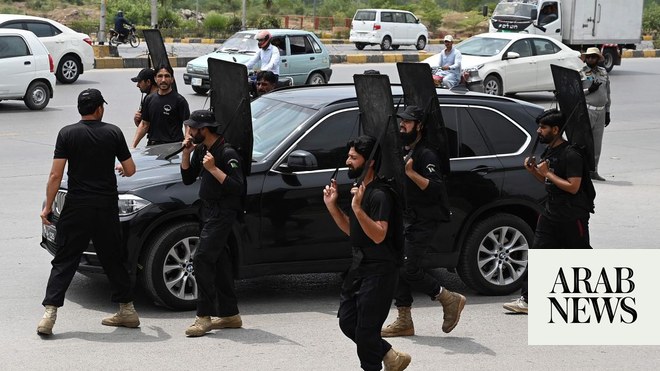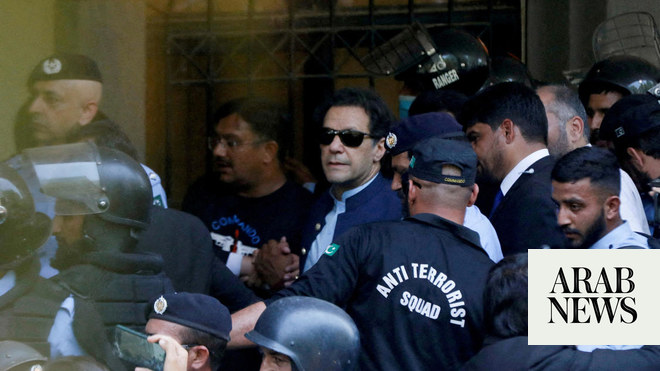
The prison selected by the government to detain Pakistan’s former prime minister, who was convicted of graft, is a lowly and distant facility that houses hardened criminals and does not have facilities that political prisoners are entitled to, his party and lawyers said on Monday.
It is a dramatic fall from the luxurious lifestyle that Imran Khan, the charismatic cricketer turned politician, has long been associated with in Pakistan and abroad.
After his conviction on Saturday, Khan was to be sent to Rawalpindi’s Adiala jail, according to an arrest warrant seen by Reuters, but was instead moved to District Jail Attock, about 80km (50 miles) west of Islamabad.
“He feels he has been brought to this jail purposely because there are no ‘A-class’ or ‘B-class’ facilities here,” one of Khan’s lawyers, Naeem Panjutha, said after meeting him on Monday, referring to the higher-class cells that have more facilities for inmates.
Attock jail, established in 1905 during British colonial rule of the subcontinent, is overcrowded, according to the government website, housing more than 800 prisoners against an authorised accommodation of about 530.
It is not as high-profile or central as other larger prisons such as Adiala jail, where several former prime ministers have been kept in Pakistan’s 76-year history, in which no elected premier has completed a full term.
Panjutha said Khan was being kept in a cramped cell, but Gulzar Butt, a retired jailor who served at Attock, told Reuters that the cells in the prison had been modified in recent years to all measure 10ft by 12ft (3 metres by 3.7 metres).
While the prison is low-key, officials and witnesses say the security has been ramped up since Khan was moved there.
Khan’s lawyers say he is facing testing conditions.
“It is a small room which has got an open washroom where he said there were flies in the daytime and insects in the night,” Panjutha said.
He said there was no air conditioning, in an area known for high temperatures and humidity during the summer and monsoon months, adding that Khan was spending his time praying and reading the Qur’an.
The lawyer added that Khan had no access to television, which his lawyers say he is entitled to given that he is a former prime minister. He was being given basic jail food, including lentils and bread, Panjutha said.
The information minister of Punjab, which controls the prison, and the chief of the jail, did not respond to requests for comment on the lawyer’s allegations.
It’s a sudden fall for 70-year-old Khan, who grew up in an affluent family in Lahore, Pakistan’s second-biggest city, studied at the University of Oxford, and developed a playboy reputation in London in the late 1970s as his cricket career flourished.
Khan has two homes in Pakistan – a sprawling hilltop mansion in Islamabad and a luxurious home in Lahore.
He has been convicted of misusing his 2018-2022 premiership to buy and sell gifts in state possession that were received during visits abroad and worth more than 140m Pakistani rupees (£380,000).
Butt, the retired jailor, said prisoners were categorised into A, B or C at the jail. If a prisoner was deemed to be important, provincial authorities could send instructions to the jail administration.
“The superintendent would then give the prisoner a separate cell, allow his family to provide him food, assign unarmed guards for his safety and provide him with a few prisoners with a good record to serve him … Mostly, prominent people get B class,” Butt said.
A prisoner could also, on special request, get an air conditioner installed in the cell at their own expense after approval from the provincial authorities, and would also have to foot the electricity bill themselves, Butt added.
Khan’s legal team said they were applying for better conditions for the former prime minister.












